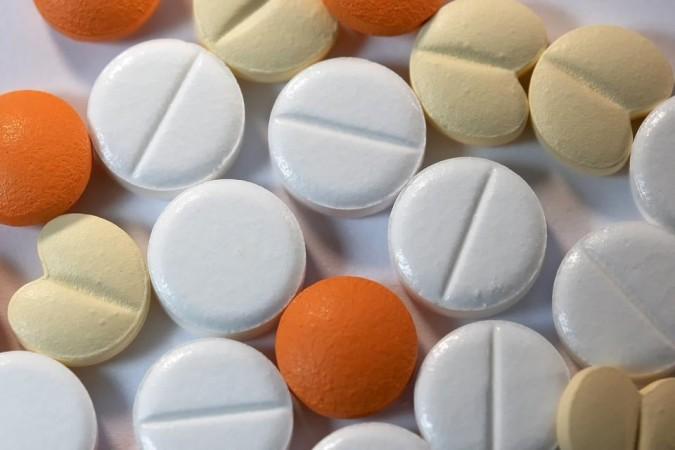With no fixed therapeutic regimen to treat COVID-19, the stand on drugs recommended for the treatment of the SARS-CoV-2 infection has witnessed see-sawing since 2020. Now, the World Health Organization (WHO) has stated that it does not recommend the use of Ivermectin, a commonly prescribed and inexpensive anti-parasitic drug, for the treatment of the viral disease.
Dr. Soumya Swaminathan, Chief Scientist at WHO, tweeted on Tuesday, stating that the international health body recommended against the use of Ivermectin for treating COVID-19 patients (with the exception of clinical trials). The tweet comes at a time when several countries, and also many states in India, have approved the use of the drug for treating the respiratory illness.
"Safety and efficacy are important when using any drug for a new indication. @WHO recommends against the use of ivermectin for #COVID19 except within clinical trials," wrote Dr. Swaminathan in her post.
Second Warning
Safety and efficacy are important when using any drug for a new indication. @WHO recommends against the use of ivermectin for #COVID19 except within clinical trials https://t.co/dSbDiW5tCW
— Soumya Swaminathan (@doctorsoumya) May 10, 2021
Several countries including India have approved the use of the FDA-approved Ivermectin for addressing the symptoms of the novel coronavirus infection. With her tweet, Dr. Swaminathan shared a statement by MSD (also known as Merck & Co.), a US-based pharmaceutical company that is also a manufacturer of Ivermectin.
In the statement, the company said that so far, its analysis has found "no scientific basis for a potential therapeutic effect against COVID-19 from pre-clinical studies". It also added that the majority of the studies presented a "concerning" lack of safety data. The report further asserted that MSD's scrutiny of Ivermectin gleaned "no meaningful evidence for clinical activity or clinical efficacy in patients with COVID-19 disease."

"We do not believe that the data available support the safety and efficacy of ivermectin beyond the doses and populations indicated in the regulatory agency-approved prescribing information," the statement maintained.
The latest warning by WHO against the use of Ivermectin is the second one in two months. In March, the UN body averred that there was "very low certainty of evidence" of the anti-parasitic on hospital admission or mortality. The WHO made the pronouncement after reviewing studies that compared Ivermectin against other drugs and a placebo, in 16 randomized control trials analyzing 2,400 participants.
Indian States Prescribe Ivermectin
In October 2020, the Union Health Ministry of India decided against the inclusion of Ivermectin in the National Clinical Management Protocol for COVID-19 for treating individuals infected with the disease. However, a few months later, the Drug Controller General of India approved the use of the drug for the same. The latest WHO warning comes at a time when Indian states have begun pushing for the active use of the drug for the medical addressal of COVID-19 cases.
Government of Goa to start Prophylaxis treatment for those above 18 years of age. Necessary instructions have been given for immediate implementation of the treatment.https://t.co/U09xjt9LZv
— VishwajitRane (@visrane) May 10, 2021
Recently, Tamil Nadu and Goa approved the use of Ivermectin as both prophylaxis (preventive medication) and treatment for the sickness. On 10 May, Vishwajit Rane, Minister for Health, Government of Goa, in a series of tweets, announced that that drug will be given to all citizens of the state above the age of 18 as prophylaxis treatment, and patients with COVID-19 will be treated with the 12mg of Ivermectin for a period of five days.
Goa's decision follows closely on the heels of that of the newly-elected Tamil Nadu government that included Ivermectin in its COVID-19 case management protocol issued on 10 May. The document prescribed 12 mg of the drug for three days for all patients ailing from different forms of the disease—moderate to severe.
Contrasting Views
While the WHO has held on to its stand against the use of Ivermectin based on its investigation, studies have argued for the immediate and global use of the drug to end the pandemic. A comprehensive peer-reviewed study led by the Front Line COVID-19 Critical Care Alliance (FLCCC), published earlier this month, made an argument for such a global use.
Patients will be treated with Ivermectin 12mg for a period of 5 days. Expert panels from the UK, Italy, Spain and Japan, found a large, statistically significant reduction in mortality, time to recovery and viral clearance in Covid-19 patients treated with Ivermectin. (2/4)
— VishwajitRane (@visrane) May 10, 2021
The study—which was peer-reviewed by medical experts including senior scientists within the US government—investigated published peer-reviewed studies, expert meta-analyses, manuscripts, and epidemiological studies of areas engaged in distribution efforts of Ivermectin.
It said that studies conducted in Italy, Japan, Spain, and the UK (also referenced by Rane in his tweets) observed a sizeable and statistically relevant reduction in not just recovery time but also a reduction in viral clearance and mortality in COVID-19 patients receiving the drug. The review concluded that Ivermectin is efficacious prophylaxis and effective treatment for COVID-19.














